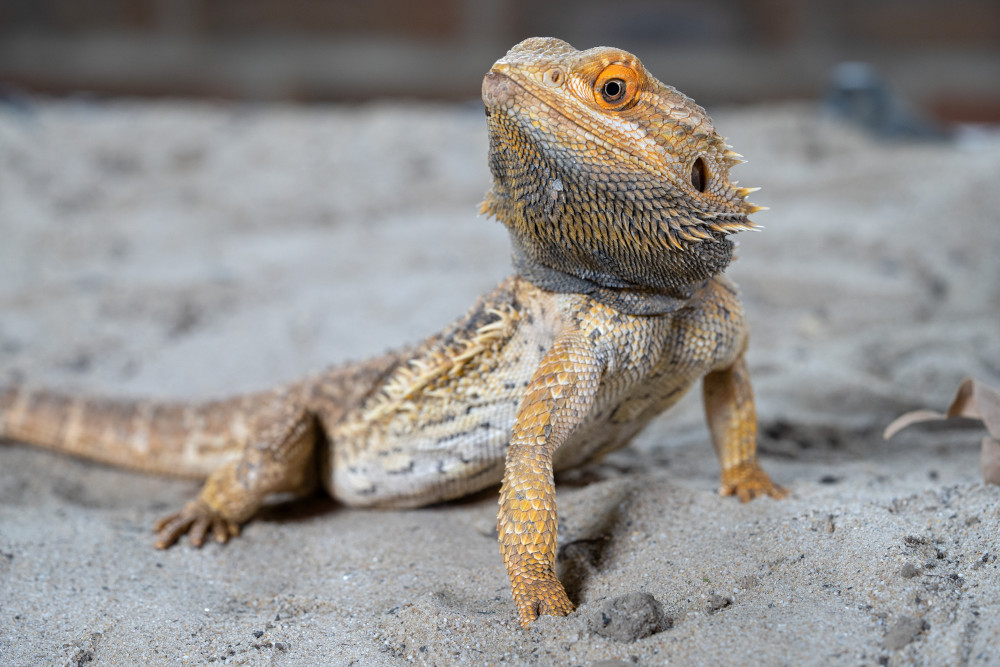How often should I worm my reptiles?

Intestinal parasites can be a serious problem for all reptiles, as they can become infected through contact with other reptiles, their droppings, or contaminated objects and substrate. A single reptile is not immune from infection, as they can re-infect themselves if an enclosure is not kept clean.
The internal parasites that are carried by reptiles may be divided into two large groups:
- Protozoa (single-celled parasites) such as coccidia, giardia, and amoeba-like parasites.
- Helminths (worms) such as roundworms, pinworms, tapeworms, and flukes.
How common are these parasites?
Intestinal parasites are very common. A recent study of disease problems in pet bearded dragons in Australia found that, in 154 dragons examined, 67% of them had significant parasite problems.
How do I know if my reptiles have worms or other intestinal parasites?
Reptiles with intestinal parasites may have the following symptoms:
- Poor appetite
- Weight loss
- Vomiting or regurgitation
- Abnormal appearing droppings
- Diarrhoea
Reptile veterinarians are trained to diagnose parasitism by examining your reptile’s faeces under a microscope, looking for eggs and ova. You can have the droppings tested by collecting a fresh sample, placing it in a sealed container, and taking it to your vet within a day. Similarly, if you are taking your reptile to the vet, they will appreciate it if you bring a fresh faecal sample with you.
Are all parasites harmful?
In the right circumstances (poor hygiene, lack of regular treatment, low temperatures, etc.) any parasite burden has the potential to grow until it impacts on the health of your reptile.
There are some parasites, often found on examination, that may not require treatment. For example, pinworms (Oxyurids) are actually needed by your reptile to help with the digestion of cellulose in your reptile’s diet. Low levels of coccidia may actually stimulate an immune response in your reptile that helps to protect them from severe infections.
Detection of these parasites is a common finding when testing the droppings of your reptile, but may not indicate the presence of disease, may only require monitoring and best husbandry practices.
However, if signs of disease are present, or there is co-infection with another disease (such as a viral infection), treatment is advised.
Treatment
The decision on whether to treat, and what with, is based on an accurate diagnosis by your reptile vet. The decisions on treating pinworms and coccidia are often made after assessing husbandry, clinical signs, and parasite burden. Larger species of worms, once identified, should be treated on diagnosis.
Numerous worming drugs can be used, such as levamisole, fenbendazole, oxfendazole, piperazine, and ivermectin. Care must be taken to choose an appropriate drug for the species, individual, and situation, as some drugs e.g., ivermectin are toxic to turtles and some skinks.
A follow-up faecal examination is recommended a few weeks post-treatment to check that the infection has been resolved. In addition, the droppings and/or reptiles should be rechecked 3-4 times a year.
Bibliography
Machin R (2015) Common gastrointestinal parasites in reptiles. In Pract 37:469–475
Carmel B, Johnson R (2014) A guide to health and disease in reptiles & amphibians. Reptile Publications, Burleigh
Solloma H, Baron H (2023) Clinical presentation and disease prevalence of captive central bearded dragons (Pogona vitticeps) at veterinary clinics in Australia. Aust Vet J 101:200–207
RSPCA Australia believes that captive-bred wild animals should not be kept in a home environment or for companion purposes unless the species has been clearly identified as being suitable for this purpose. It is important that animals living in a home environment can live a good life. This means providing for their physical health and ensuring opportunities to fully express their individual interests and experience good welfare. Inadequate care and husbandry are reported to contribute to common and serious welfare compromises in many captive wild animals living in home environments. For more information see our policy.
The reality is, however, that captive-bred wild animals are kept in home environments despite sometimes not meeting these criteria (e.g., some reptile and bird species). Because of this, the RSPCA has produced these articles on the care and welfare of a variety of commonly kept captive-bred wild animals. The aim is to help people better understand their animals as individuals and provide them with care that keeps them healthy and provides opportunities for positive mental experiences as much as possible in captivity.
Wild animals must not be taken from the wild to be kept as companion animals (pets).
Was this article helpful?
This work is licensed under a Creative Commons Attribution-NonCommercial-NoDerivatives 4.0 International License.



